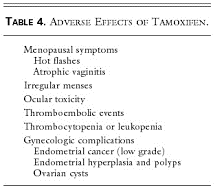A nurse is caring for a client who has heart failure and monitor when administering lisinopril?
Bradycardia
Hypokalemia
Hypotension
Tinnitus
The Correct Answer is C
Choice A rationale:
Bradycardia (slow heart rate) is not a primary concern when administering lisinopril.
Choice B rationale:
Hypokalemia (low potassium levels) can be a concern with certain medications, but it is not directly related to lisinopril administration.
Choice C rationale:
Lisinopril is an angiotensin-converting enzyme (ACE) inhibitor commonly used to treat heart failure. One of the potential side effects of ACE inhibitors is hypotension (low blood pressure), so the nurse should monitor the client's blood pressure closely during and after administration.
Choice D rationale:
Tinnitus (ringing in the ears) is not a common side effect of lisinopril.
Nursing Test Bank
Naxlex Comprehensive Predictor Exams
Related Questions
Correct Answer is A
Explanation
Choice A rationale:
Hot flashes are a common adverse effect of tamoxifen, which is often used to treat hormone receptor-positive breast cancer.
Choice B rationale:
Constipation is not typically associated with tamoxifen.
Choice C rationale:
Urinary frequency is not typically associated with tamoxifen.
Choice D rationale:
Tinnitus is not a common adverse effect of tamoxifen.

Correct Answer is A
Explanation
- A) Alcohol use disorder is a contraindication for acetaminophen due to the increased risk of liver damage, especially in the case of chronic alcoholism or liver diseases.
- B) Chronic kidney disease is not an absolute contraindication but requires caution. Dosing intervals may need to be adjusted due to altered excretion.
- C) Receiving a Hepatitis B vaccine within the last week is not a contraindication for acetaminophen.
- D) Diabetes mellitus is not a contraindication for acetaminophen. Patients with diabetes should be aware of sugar content in liquid formulations, but it does not preclude the use of the medication.
Whether you are a student looking to ace your exams or a practicing nurse seeking to enhance your expertise , our nursing education contents will empower you with the confidence and competence to make a difference in the lives of patients and become a respected leader in the healthcare field.
Visit Naxlex, invest in your future and unlock endless possibilities with our unparalleled nursing education contents today
Report Wrong Answer on the Current Question
Do you disagree with the answer? If yes, what is your expected answer? Explain.
Kindly be descriptive with the issue you are facing.
